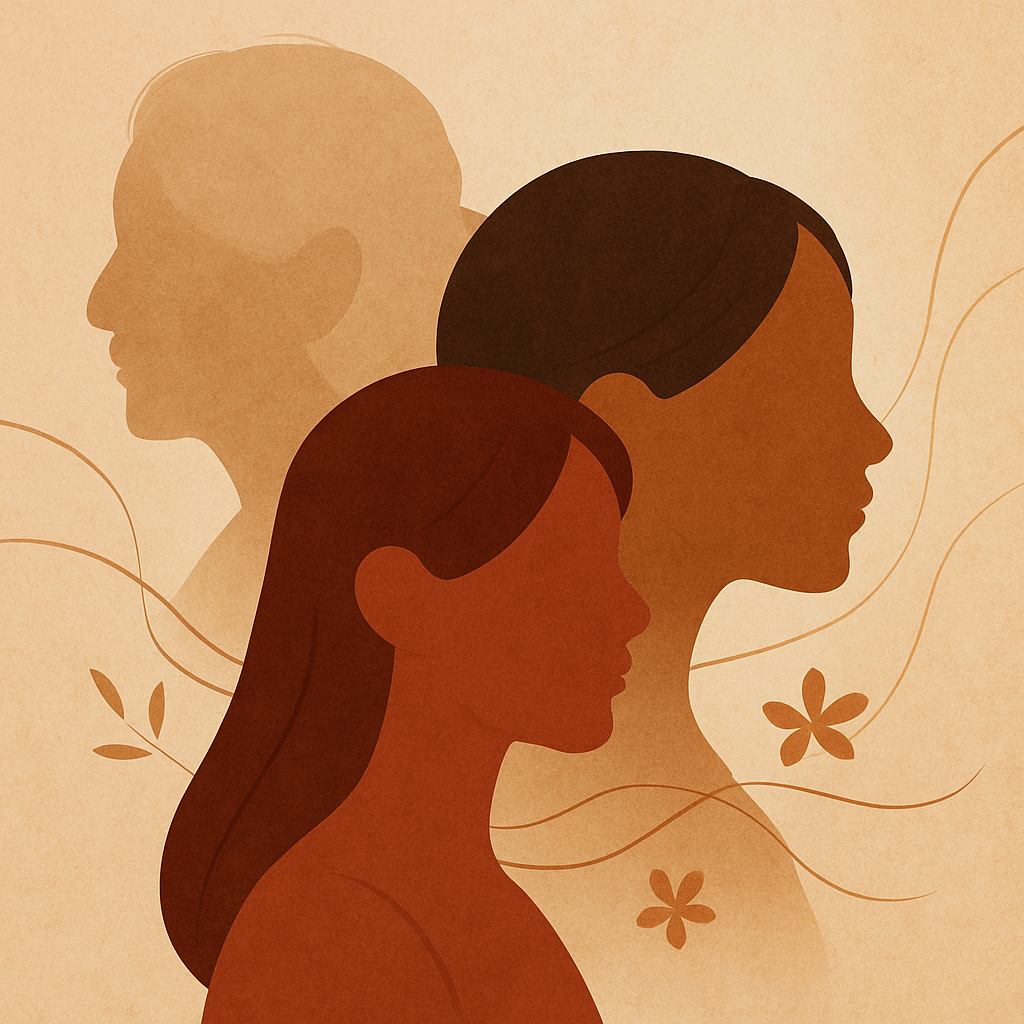An Ode to Motherhood

I always wanted to be a mother. That was the end goal—what you worked toward, what you saved for, what you molded yourself into. I never questioned it. Graduate college → get married → have children. The sequence was non-negotiable, a recipe for life set by tradition. Not before, because you’d be disowned. But at the right time. When I graduated college, I was ready to find a partner. Not just for companionship but for motherhood. I was so focused on being the right person—so someone would love me, so I could have children—that I never stopped to think about what being a mother actually meant.
It wasn’t a dream; it was an expectation. My own, my family’s, society’s.
But life didn’t follow a script. By the time I hit my 30s, the realization crept in: I might be alone. I might not get married. I might not have children. When I did get married in my mid-30s and married, I found myself up against a new reality—the era of “geriatric pregnancy.” Two words that wrap themselves around your throat, suffocating any sense of peace. The risk is high, the doctors tell you. And the clock ticks louder than ever.
That was the first time I questioned it.
I began to consider what motherhood actually demands—the physical and emotional toll of trying to conceive, the invasive intrusion of tests like the HSG, the constant pricking of needles for IVF. The sharp sting of hope and disappointment. Society paints motherhood in soft hues—cozy nurseries, Instagram-perfect photos, tiny hands grasping fingers—but no one tells you about the hard edges. The struggles. The aching body and battered spirit. The silent battles that aren’t discussed because the outcome is supposed to be worth it.
But what about after the birth? What about the sleepless nights spent pacing a dark room, cradling a child who won’t stop crying? Or the worry that gnaws at you when they’re not home on time, the constant second-guessing if you’re mothering the right way? I can’t pretend to understand the full weight of it. I’ve never been a mother. But I watch, I listen, and I learn.
Lost in Translation
My mother carried that weight in silence—steady, unyielding, like it was stitched into her bones. Growing up, I never understood why she was always worried or angry, why joy felt like a foreign concept in our household. Joy wasn’t part of our vocabulary; survival was. We didn’t speak of dreams or happiness. We spoke of getting by.
As I got older, I tried to piece together her perspective—the reasoning behind her choices, the expectations she placed on my sisters and me that seemed so different from those she placed on my brothers. Why did she abandon her dreams of going back to school? Why did she hold her tongue when my father spoke, even when I knew she wanted to say more?
But our conversations are fragile, like glass stretched thin. Too much pressure, and they crack. It’s not just about words; it’s about culture, about tradition. I wasn’t raised to question or push back. So we drift back to what’s safe. Surface-level things that don’t threaten any emotions of guilt or resentment.
How do I ask her about the journey of motherhood when I can’t even ask about the moments we both lived through? So I stay quiet. Or we talk about food. Because food is safe. Food is something we know how to navigate
The Grit of Survival
When I strip away the emotions, the frustrations, and the misunderstandings, I see her for what she is—a survivor. A woman who raised five children with grit and sacrifice. There are things I know, but there are far more things I don’t. I knew we were poor, but I never felt the weight of it. Not like she did.
She carried burdens I’m only now beginning to understand. The invisible weight of expectation. The unspoken sacrifices. The long nights spent stitching pieces of life together so we wouldn’t feel the cracks. I look back and wonder how she did it. Not perfectly, not without fault, but she did it.
Respecting the Reality
As I find myself grappling with conflicting emotions about the idea of motherhood. I don’t always agree with my mother’s choices, but I respect the strength it took to survive. Motherhood, I’ve realized, is not just about raising children. It’s about enduring. It’s about fighting silent battles that no one sees, about sacrificing parts of yourself for someone else’s future.
Motherhood is one of the hardest jobs in the world. It’s messy and beautiful, rewarding and exhausting, often at the same time. And even if I never experience it firsthand, I can honor it.
So today and every day, I honor not just my mother, but all mothers—the ones who work tirelessly, who carry the invisible weight of expectation, who strive to do their best in a world that often asks too much. We don’t have to fully understand them to respect them. And maybe that’s the real lesson—honoring the effort, even when it doesn’t look the way we expect.